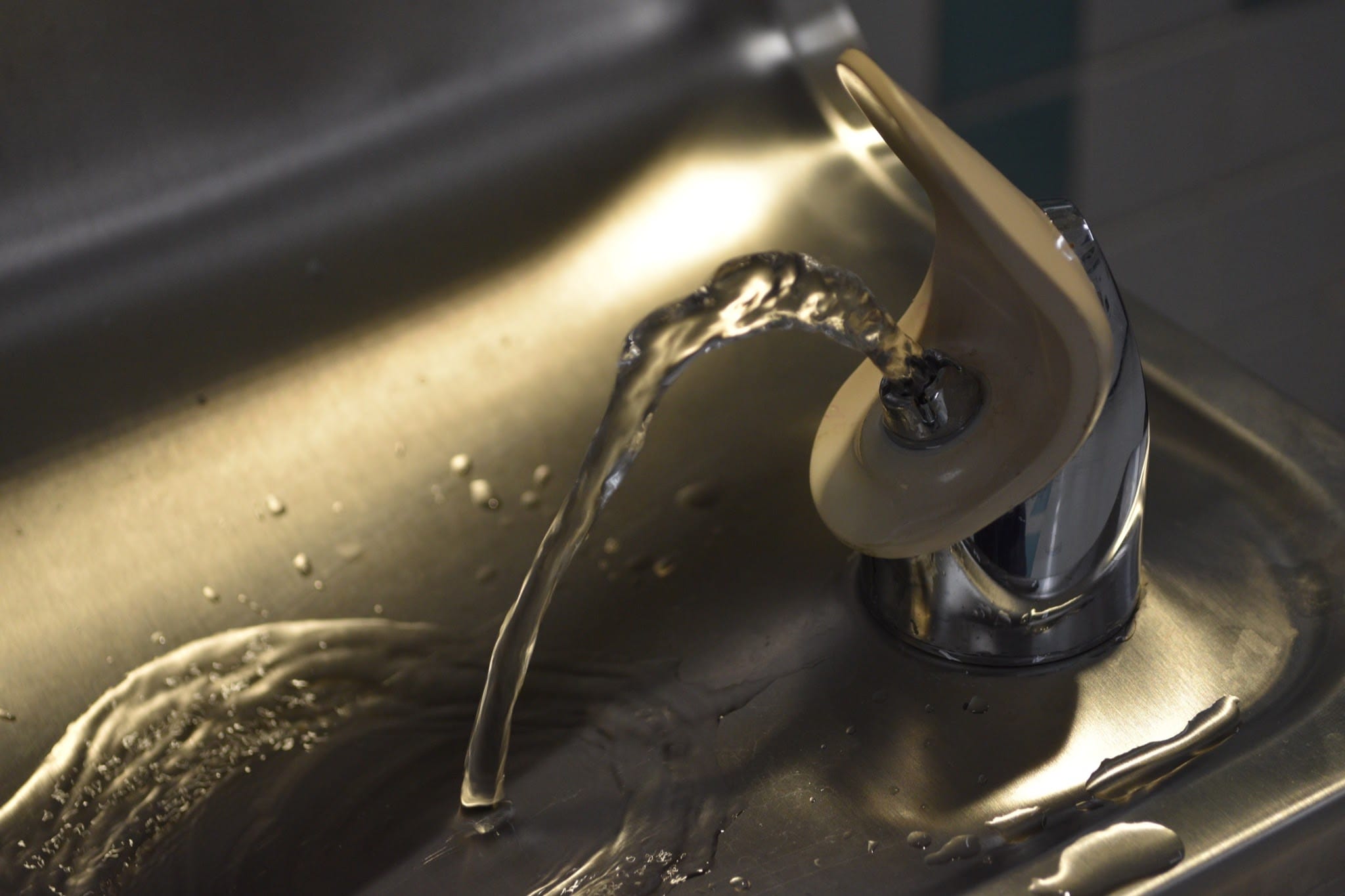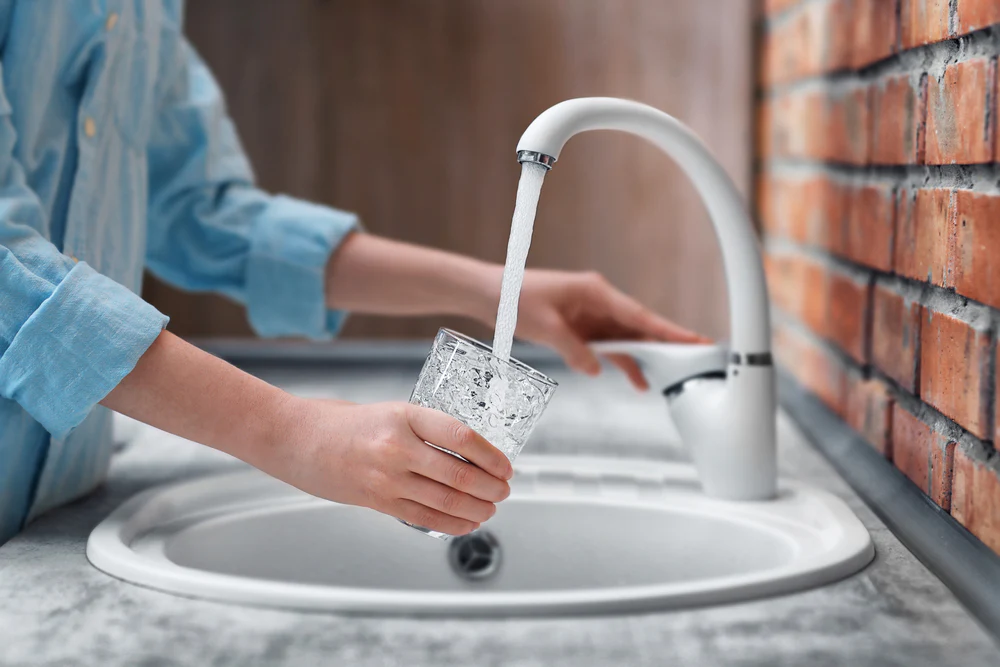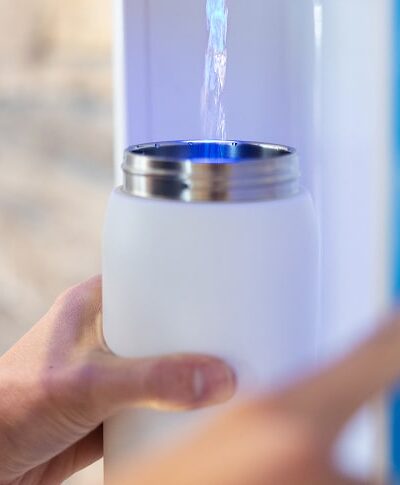School should always be a safe and nurturing environment for children, where thirsty young minds can drink up all there is to learn about the world around them without worry.
Of course, children will always have a school-related worry or two, like Friday spelling tests or climbing the dreaded rope at gym class. But one thing children should never worry about while at school is water quality and how it may be affecting their health. There are many benefits of drinking water in school, and while those young minds are learning math and history, they shouldn’t be sipping lead-tainted water between lessons.
Water that’s contaminated with lead is extremely dangerous to consume, particularly for children. But, many schools around the country have plumbing that predates important environmental safety laws, and therefore have some type of lead contamination in water systems. In this article, we’ll discuss the serious consequences of lead in school drinking water, as well as a promising potential solution with FloWater.
What is Lead and Lead Poisoning?
Lead is a highly toxic heavy metal. Lead is a naturally occurring element, but just because it’s natural doesn’t mean it’s good for you. Unlike other metals like iron and potassium, lead is not something our bodies need to survive.
Unfortunately, public health officials didn’t understand how harmful lead can be to the human body until a few decades ago. During that time, companies had used it in paint, gasoline, plumbing, ceramics, cosmetics, and even children’s toys. As a result, lead can still be found today all around us, in old houses, in vintage shops, and even in older plumbing.
Exposure to lead products through touch or consumption can lead to lead poisoning.
Lead is so toxic that there is no acceptable lead level to have in your blood. In other words, eating, drinking, or breathing in any amount of lead can be very dangerous to your health.
Often, people are asymptomatic, meaning they do not show any negative symptoms until they already have very high levels of lead in their blood, which may lead to several potential health risks. So, by the time you suspect something might be wrong, the lead could have already wreaked havoc on your body—or in the case of lead plumbing in older schools, the entire student body.
Why is Lead Particularly Dangerous for Children?
Young children are more vulnerable to lead poisoning for several reasons:
- Children are more prone to hand-to-mouth behaviors – Parents know that young children have a penchant for putting things in their mouths that don’t belong, like their thumbs, small toys, or even spare change. So if a child encounters an object with high amounts of lead, there’s a good chance that hand-to-mouth behavior will result in the ingestion of lead.
- They spend more time on floors – Lead isn’t just in pipes or paint. It can also be present in soil or older flooring. That means a child simply practicing their somersault skills or playing with their favorite set of blocks may be exposed to dangerous amounts of lead.
- Children’s bodies absorb lead more efficiently than adults – Children’s gastrointestinal tracts can absorb 40% of the lead they consume when drinking lead-contaminated water from a school drinking fountain, compared to adults whose bodies only take in 15% of the lead that passes through their intestines.
Increased lead absorption can seriously exacerbate the health risks of lead poisoning, so if a child is exposed to the same amount of lead as an adult, the child will have more severe symptoms.
Elevated risk of health consequences combined with an elevated risk of exposure through accidental consumption makes children more susceptible to the harmful effects of lead poisoning.
5 Dangerous Health Consequences of Lead in School Drinking Water
Lead in any drinking water outlet in schools has consequences for the student body and faculty members. Some symptoms differ between children and adults—for example, the potential risk of damage to a pregnancy. However, it’s important to know all the dangers to protect everyone who steps foot in the school.
The following are five categories of symptoms experienced by people with lead poisoning.
#1 Gastrointestinal Symptoms
Kids experience tummy aches all the time. However, lead in school water can lead to more serious gastrointestinal symptoms in kids and adults alike, including:
- Abdominal pain
- Vomiting
- Constipation
- Loss of appetite
- Weight loss
- Pica (an eating disorder where you crave inedible items)
#2 Growth and Developmental Complications
Children who are exposed to lead, particularly before the age of six, can have developmental delays. This could include both physical and mental problems, causing slowed growth and learning difficulties.
Over time, repeated exposure to even low levels of lead can cause extensive damage, leading to life-long ailments in children, including:
- Hearing loss
- Seizures
- Impaired brain development
- Kidney damage
- Nervous system damage
In the most severe cases, lead poisoning can cause unconsciousness, coma, and even death. Although doctors can treat lead poisoning, the resulting chronic health issues are often difficult to reverse.
#3 Mood Changes
Studies have shown that there may be a connection between mental disorders and the consumption of lead at a young age, including:
- Phobia
- Depression
- Mania
- Schizophrenia
Early lead exposure can also be linked to behavioral problems, such as irritability and difficulties with attention, and decreased IQ.
#4 Pregnancy Complications
Unborn children can also bear the brunt of lead poisoning. If a pregnant woman is exposed to lead when using a school’s drinking fountain, the growing fetus may experience:
- Lower birth weight
- Slowed growth and development
- Miscarriage, stillbirth, or premature birth
#5 Adult-Specific Symptoms
While adults are not as vulnerable to the effects of lead consumption as children, it can still pose a significant health risk. For example, adults subjected to lead poisoning may experience:
- High blood pressure
- Hypertension
- Joint and muscle pain
- Difficulties with memory or concentration
- Headaches
- Reproductive problems
The Solution: Purified Water
Safe drinking water is a necessity, both in the classroom and out. However, older school buildings built before 1986 may have outdated plumbing systems latent with lead. As such, the contaminants can leak into the water supply when the pipes, faucets, or drinking spouts become corroded.
To further the issue, most standard water fountains and sinks found in schools only filter water but do not purify it. While filters can catch sediments and debris, they can’t always remove harmful contaminants like lead and other heavy metals.
So how can you create a safe and healthy environment for school children looking to stay hydrated? Water purification systems, such as water refill stations and faucet filters, can help to remove harmful traces of lead and keep children feeling their best throughout the school day and beyond.
Water Refill Stations
A water refill station is a touchless and eco-friendly water dispenser where children can fill their water bottles or fill their cups of noodles for lunchtime. They use advanced water purification systems to remove harmful contaminants like lead and other impurities.
More specifically, FloWater’s Water Refill Station is a safe and clean alternative to drinking fountains or tap water. Using a 7-step purification process, it removes a myriad of potentially harmful substances, ensuring jungle-gym-loving children have plenty of fresh, safe drinking water after recess, including:
- Heavy metals, like lead
- Dirt, dust, and solid impurities
- Chlorine, radon, hydrogen sulfide, and fluoride
- Bacteria and viruses
- Pharmaceuticals
- Pesticides and herbicides
Because a water refill station is designed to fill water bottles, not mouths, it’s also more sanitary than a drinking fountain. Lead in school water fountains poses several health and sanitary risks. In contrast, most water refill stations are self-cleaning, using activated oxygen to sanitize the inner tanks and systems.
Faucet Filters
Some children may also use school sinks to fill their water bottles if the drinking fountain line stretches down the hallway. Faucet filters can be mounted to the faucet to trap contaminants like sediments and lead from the tap water.
FloWater’s Faucet Filter fits right onto your sink faucet, removing contaminants from your tap water quickly and easily.
Specifically, the faucet filter has a 5-stage micro-carbon block filter to reduce lead, mercury, fluoride, and arsenic levels to safe concentrations.
Why Not Just Get Rid of the Lead Pipes?
Removing lead pipes from a school building or home is a complex process. It involves significant planning and construction over an extended period of time that may lead to lengthy closures.
Additionally, schools connected to a public water system may not have control over the city’s operations. In fact, many cities around the country are still using lead pipes to deliver water to school buildings and homes, despite many years of attempted legislation to renew plumbing systems.
While removing lead pipes is one way to stop the problem at its source, it’s more convenient and cheaper for school districts to treat and purify the water within their buildings using new technology.
Keep Your Water (And Your Students) Safe with FloWater
Lead-contaminated water can pose a threat to the safety and health of our most vulnerable—children. Luckily, purification technology provides school districts with numerous solutions to keep drinking water contaminant- and lead-free. For more information, check out our guide on how to remove lead from water.
If you’re looking to keep your schools clean and your students safe, look no further than FloWater.
Our Water Refill Stations provide fresh, clean water to children that is free from developmental and physical hazards often found in drinking fountains and tap water, like lead. Additionally, our Faucet Filters can bolster any school kitchen, staff room, or restroom to keep the entire student body healthy.
With FloWater, you can stop worrying about students’ health and get back to focusing on what matters most: their education.
Sources:
EPA. Learn about Lead. https://www.epa.gov/lead/learn-about-lead
CDC. Lead in Drinking Water. https://www.cdc.gov/nceh/lead/prevention/sources/water.htm
Mayo Clinic. Lead poisoning. https://www.mayoclinic.org/diseases-conditions/lead-poisoning/symptoms-causes/syc-20354717
NBC News. Lead in water: Study shows many schools have far too much. https://www.nbcnews.com/health/health-news/lead-water-study-shows-many-schools-have-far-too-much-n956851
Harvard School of Public Health. Study finds link between childhood lead exposure and mental illness. https://www.hsph.harvard.edu/news/hsph-in-the-news/childhood-lead-exposure-mental-illness/ U.S. National Library of Medicine.
Lead and Children. https://www.ncbi.nlm.nih.gov/pmc/articles/PMC2902938/





